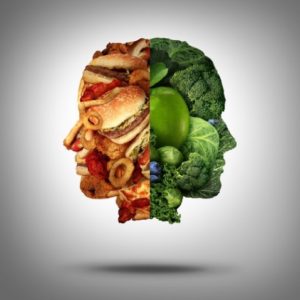Preserving Your Memories In Your Golden Years
Author: Dr. Stephen Chaney
 Alzheimer’s is a scary disease. There is so much to look forward to in our golden years. We want to enjoy the fruits of our years of hard work. We want to enjoy our grandkids and perhaps even our great-grandkids. More importantly, we want to be able to pass on our accumulated experiences and wisdom to future generations.
Alzheimer’s is a scary disease. There is so much to look forward to in our golden years. We want to enjoy the fruits of our years of hard work. We want to enjoy our grandkids and perhaps even our great-grandkids. More importantly, we want to be able to pass on our accumulated experiences and wisdom to future generations.
Alzheimer’s and other forms of dementia have the potential to rob us of everything that makes life worth living. What is the use of having a healthy body, family, and fortune if we can’t even recognize the people around us?
That is why anything that might reduce the risk of Alzheimer’s is BIG news, which brings me to the recent buzz about the MIND diet. Can diet prevent Alzheimer’s.
What Is The MIND Diet?
 The MIND diet is the brainchild of Dr. Martha Clare Morris, a nutritional epidemiologist at Rush University Medical Center. She started with the Mediterranean and DASH diets, which I have described in a previous issue of “Health Tips From the Professor,” because both of those diets have been shown to reduce the risk of dementia. Then she researched the literature for studies linking specific foods and nutrients to improving cognition and/or preventing dementia.
The MIND diet is the brainchild of Dr. Martha Clare Morris, a nutritional epidemiologist at Rush University Medical Center. She started with the Mediterranean and DASH diets, which I have described in a previous issue of “Health Tips From the Professor,” because both of those diets have been shown to reduce the risk of dementia. Then she researched the literature for studies linking specific foods and nutrients to improving cognition and/or preventing dementia.
In short, she combined the brain-healthy features of the Mediterranean and DASH diets and further modified them based on the best scientific data available. She emphasized some components of those two diets and minimized others. She also modified the number of servings of some foods, based on the best available evidence.
She acknowledged that when she eliminated or reduced foods that were parts of those two diets, it did not mean those foods might not play an important role in preserving cognitive function as we age. It simply meant we don’t currently have strong evidence to prove their beneficial effects in preserving cognition.
The MIND diet is a whole food, plant-based, diet.
- It includes 10 “brain-healthy” food groups: green leafy vegetables, other vegetables, nuts, berries, beans, whole grains, fish, poultry, olive oil, and wine (in moderation, too much alcohol kills brain cells).
- It limits red & processed meats, butter and margarine, cheese, pastries & sweets, and fried & fast foods.
- It neither recommends nor discourages low fat dairy foods and fruit other than berries. Dr. Morris notes that while those are healthy foods, they have no proven benefit for preventing cognitive decline.
Can Diet Prevent Alzheimer’s?
As you can tell, a lot of thought went into the design of the MIND diet, but does it work? Dr. Morris partnered with 5 of her colleagues at Rush University Medical Center to test the hypothesis (Morris et al., Alzheimer’s & Dementia 11: 1007-1014, 2015). They enrolled 923 participants, ages 59 to 98 years (average age = 81) from retirement communities and senior public housing units in the Chicago area. All participants were free of Alzheimer’s disease when the study began.
 At the beginning of the study each participant filled out a detailed food frequency questionnaire. Participants were given an extensive physical and neurological exam designed to diagnose the onset of Alzheimer’s disease and/or dementia on an annual basis. Participants were followed for an average of 4.5 years, during which time 144 of the participants developed Alzheimer’s and another 14 developed non-Alzheimer’s dementia.
At the beginning of the study each participant filled out a detailed food frequency questionnaire. Participants were given an extensive physical and neurological exam designed to diagnose the onset of Alzheimer’s disease and/or dementia on an annual basis. Participants were followed for an average of 4.5 years, during which time 144 of the participants developed Alzheimer’s and another 14 developed non-Alzheimer’s dementia.
At the end of the study the food frequency data were analyzed to determine how closely participants adhered to the MIND diet, the Mediterranean diet, and the DASH diet. Adherence to each of these diets was then correlated with the onset of Alzheimer’s disease. [To be perfectly clear, none of the participants were given any dietary instruction. Nor were they advised to change their diet. This study simply looked at the diets they were already eating and determined how closely their diet matched the standards set for MIND, Mediterranean, and DASH diets.] The results were striking:
- Strict adherence to all 3 diets significantly decreased the risk of developing Alzheimer’s disease. The decreased risk was:
- 53% for the MIND diet.
- 54% for the Mediterranean diet.
- 39% for the DASH diet.
- When the investigators looked at moderate adherence to each of the diets, the MIND diet performed slightly better than the other two diets:
- Moderate adherence to the MIND diet decreased Alzheimer’s risk by 35%.
- Moderate adherence to the Mediterranean and DASH diets had no significant effect on Alzheimer’s risk.
What Does This Study Mean For You?
Dr. Morris concluded that healthy diets, such as the Mediterranean and DASH diets, provide substantial protection against dementia. She stated that as new studies come along, these diets can be modified to provide even better protection. She considers the MIND diet is the first step in that process.
 A 53% decrease in Alzheimer’s risk is impressive. However, if you are really concerned about dementia and Alzheimer’s disease, you should think of diet as only one component of a holistic approach. As I described in a recent article How to Prevent Memory Loss, a holistic approach to preserving your cognitive function includes:
A 53% decrease in Alzheimer’s risk is impressive. However, if you are really concerned about dementia and Alzheimer’s disease, you should think of diet as only one component of a holistic approach. As I described in a recent article How to Prevent Memory Loss, a holistic approach to preserving your cognitive function includes:
- A healthy diet
- B vitamins & omega-3s
- Weight control
- Exercise
- Adequate sleep
- Socialization
- Memory training (mental exercise)
The Bottom Line
- The Mediterranean and DASH diets have already been shown to preserve mental function as we age, thus reducing the risk of developing dementia and Alzheimer’s.
- Martha Morris at Rush University Medical Center used the latest studies on specific foods and nutrients that preserve mental function to modify those diets into something she calls the MIND diet.
- Morris and colleagues at Rush then evaluated the effectiveness of all 3 diets on reducing Alzheimer’s risk. Strict adherence to all 3 diets significantly decreased the risk of developing Alzheimer’s disease. The decreased risk was:
- 53% for the MIND diet.
- 54% for the Mediterranean diet.
- 39% for the DASH diet.
- When the investigators looked at moderate adherence to each of the diets, the MIND diet performed slightly better than the other two diets:
- Moderate adherence to the MIND diet decreased Alzheimer’s risk by 35%.
- Moderate adherence to the Mediterranean and DASH diets had no significant effect on Alzheimer’s risk.
- Morris concluded that healthy diets, such as the Mediterranean and DASH diets, provide substantial protection against dementia. However, she feels that as new studies come along, these diets can be modified to provide even better protection. She considers the MIND diet as the first step in that process.
- Healthy diet is only one component of a holistic approach for preserving mental function. Other components include:
- B vitamins & omega-3s
- Weight control
- Exercise
- Adequate sleep
- Socialization
- Memory training (mental exercise)
These statements have not been evaluated by the Food and Drug Administration. This information is not intended to diagnose, treat, cure or prevent any disease.
